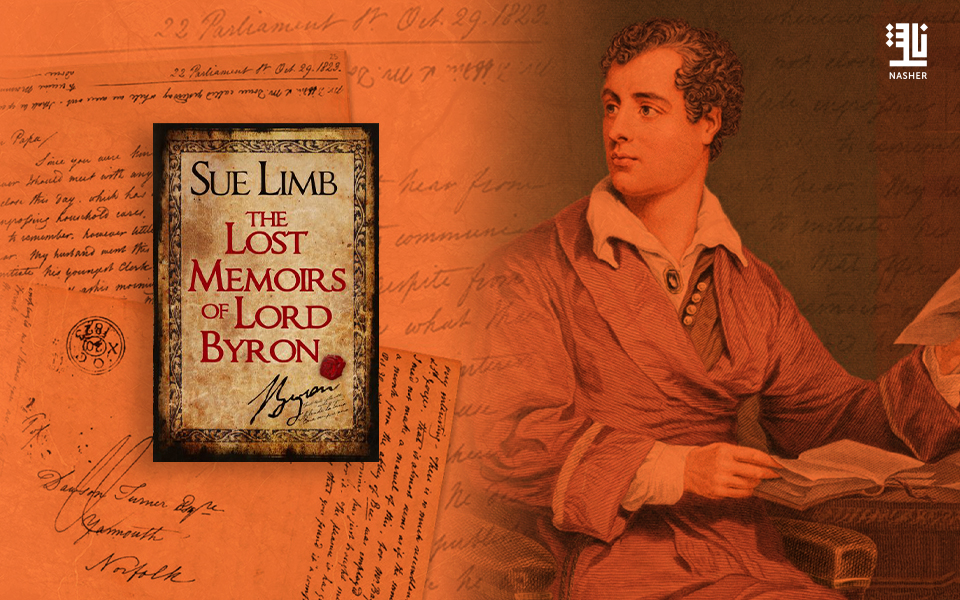A letter describing the contents of Lord Byron’s lost memoirs revealing how he “set his mind to evil” has been discovered in a university library.
It was written by Elizabeth Palgrave, from Great Yarmouth, Norfolk, in 1823 after a visit to a publishing house.
The “bad boy” poet gave his memoirs to a friend in 1819 with instructions to publish them after his death. They destroyed them when he died in 1824.
The letter was discovered in the college library, which is part of the University of Cambridge, by archivist Adam Green while cataloguing Dawson Turner’s archive.
He said: “This fascinating detail is typical of Elizabeth Palgrave’s letters, which burst with intelligence and information.” Mrs Palgrave was visiting the publishing house of John Murray with her husband Francis when she “opened the pages accidentally at that part of his Lordship’s life which mentions his marriage”.
The traveller and diarist wrote to her father Dawson Turner, saying: “I read it with the utmost interest & avidity. It is grievous to read his declaration of indifference to his wife & of aversion to her mother, whom he never mentions but by the most opprobrious epithets.”
“Nor does he ever call his wife by any name but that of ‘Miss Milbanke’.” She wrote that Byron’s memoirs “contain the most severe remarks, not only on [his father-in-law] Sir Ralph Milbanke’s family, mode of life – but all the families in the neighbourhood whom his Lordship met, are mentioned by name and classed in the wittiest but most cruel manner”. “Ld (sic) Byron evidently set his mind to evil – he takes delight in recording his own wickedness, & in the most perverted of all feelings – that of exposing & degrading his wife.”
In the letter dated 29 October 1823, she wrote: “I opened the pages accidentally at that part of his Lordship’s life which mentions his marriage [to Anne Milbanke], and I read it with the utmost interest and avidity.
“Lord Byron prefaces this portion of his manuscript by professing his design of hurrying over it, as it is of all the most painful to record.
“He then, in the most cold-blooded and heartless manner, declares his little attachment to his wife at any time…
He also fought for the oppressed – he died while supporting the Greek struggle for independence from the Ottoman Empire – and “magnetized myriads with his beauty, brilliance, charisma and wit”, said Trinity College.
In 1815, he married fellow aristocrat Anne Isabella Milbanke, but the marriage collapsed. Cambridge scholar Dr Corin Throsby said: “For centuries people have wondered what Byron’s lost memoirs might have contained, so it is truly exciting to have another first-hand account from someone who read them.
“Byron was always out to shock, and he would have been unsurprised and possibly delighted by Elizabeth’s extreme reaction to his work.
The poet studied at Trinity College and it is marking the bicentenary of his death with a two-day festival.
The poet, who was 36 when he died in 1824, had left his memoirs with instructions to publish them following his death – but the manuscript was burned at the office of his publisher after he died amid fears of damage to his reputation.
The discovery comes hot on the heels of an earlier discovery of the only known letter to exist between poet Lord Byron and the ‘Father of Reform’ politician, Major John Cartwright, that was sold at auction for £6,000.
The unpublished discovery was found in a Gloucestershire house where it was thought to have remained “for decades”.
During a routine valuation day, Chorley’s Auctioneers came across the 1813 letter which was expected to make between £1,500 and £2,500.
“Unpublished letters by Byron are vanishingly rare and we are delighted that this missive has excited buyers,” said Chorley’s director Werner Freudnel.
Lord Byron was one of the most well-known romantic poets of the 1800s. he letter is addressed to Major Cartwright of 17 James Street, Westminster.
It reads: “Dear Sir, It is with great regret I find that it will be necessary for me to leave London tomorrow morning – and thus be prevented the pleasure I had promised myself in meeting you & Sir F. tomorrow.
“I was not aware of this till the Post came in this morning, which must be my apology for not acquainting you with the circumstances before. I am truly yrs B”.
He is thought to have known Major Cartwright as he served as a Naval Officer under Byron’s grandfather – Admiral John Byron between 1765 and 1770 on the Newfoundland Station.
“This letter shows a human insight into Byron’s extraordinary character and knowing the background to his life at the time, makes it all the more interesting.”







